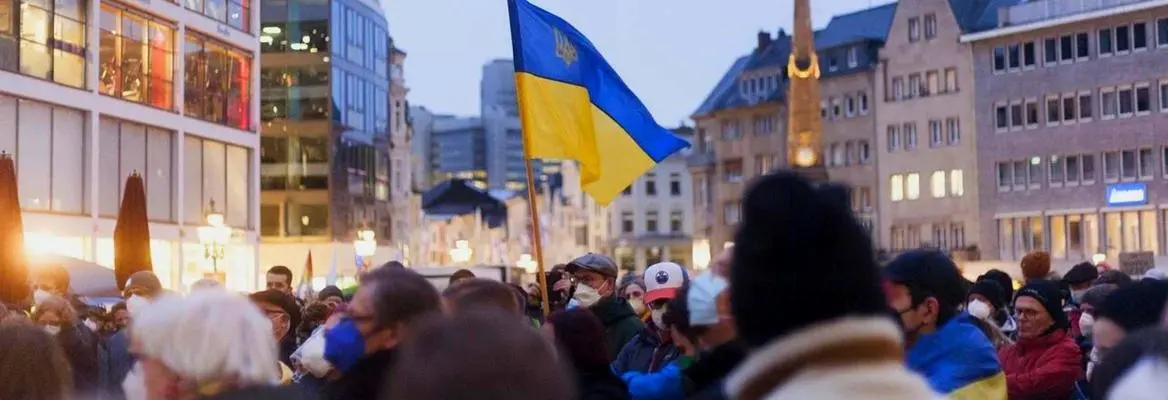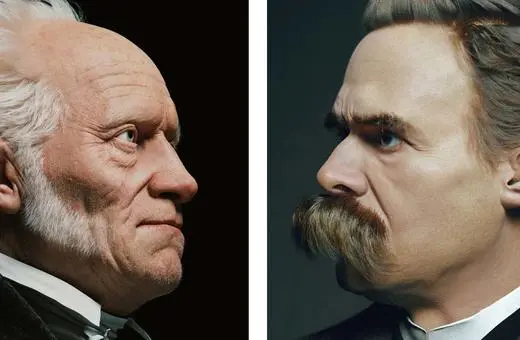The war has forced Ukrainian leaders like President Zelensky and Kiev’s mayor, Vitali Klitschko, to face decisions of existential proportions. Should they stand up to Putin, thus risking the lives of themselves and their citizens, or surrender, thus compromising their identity and the very existence of their country? It’s the type of question that existentialists like Jean Paul Sartre thought was impossible to answer by following reason alone. It’s precisely when it’s unclear what the right choice is, that the radical freedom and moral responsibility of human beings is revealed, writes Gordon Marino.
I am sitting in my cozy library in Northfield Minnesota, about to comment on the war in Ukraine from an existentialist perspective. The proto–Existentialist Soren Kierkegaard never tired of reminding himself and his readers that “To understand and to understand are two different things,” as in, there is abstract understanding and personal/concrete understanding. Let me begin by confessing, I don’t know what I am talking about in terms of that all-important second sense of understanding. After all, I have never been to war; never had to carry my child and help my sick mother into a bomb shelter. So, I suggest taking my naïve, albeit earnest, reflections on the war from an existentialist standpoint, with two grains of salt.
The phrase “existential crisis” has become hackneyed of late, as in, “increased gas prices could cause an existential crisis.” But the Russian invasion of Ukraine certainly is such a crisis, one that threatens the very being of the Ukrainian people, and as such it warrants commentary from an existentialist perspective.
___
the post war Sartre was adamant that though logic can’t decide for us, we remain responsible for and are ultimately defined by our choices
___
In fact, it was after the existential catastrophes of the world wars that Existentialism as a philosophical movement ascended to its highest levels of popularity. That is in part because thinkers like Kierkegaard, Sartre, de Beauvoir, and Camus stressed the limits of rationality, and much of what transpired in those humanly produced global conflagrations was far beyond the pale of reason, much like Putin’s seemingly objectiveless and unprovoked war on Ukraine.
The existentialists are a motley crew, linked together by a set of themes more than anything else. One leitmotif is the notion of “radical choice.” That is, the idea that human beings possess free will and are frequently required to make vital choices that can’t be decided by reason alone.





















Join the conversation